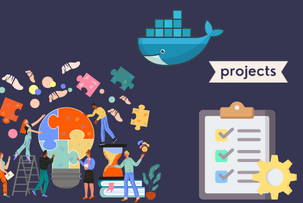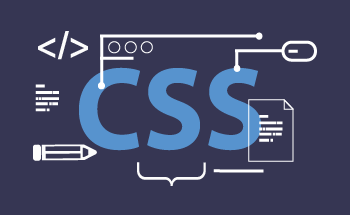Selecting the Ideal DevOps Framework: Essential Considerations
08:51, 22.01.2024
In the constantly changing modern world, access to the newest tools is crucial especially those that provide perfect integration of operation and software development. DevOps frameworks are a great choice to solve some issues by streamlining processes and creating a culture of shared objectives. These frameworks are a great foundation for increasing productivity and improving teamwork by specifying common goals and dealing with information barriers.
Implementation of DevOps can influence constant improvement, higher quality, and software delivery in general. The frameworks offer a huge variability of features such as monitoring, teamwork, interaction, feedback, and automation. With DevOps frameworks, companies can greatly improve efficiency compared with more traditional practices.
Let’s discuss the frameworks in detail with some practical recommendations from our professional experience.
Understanding DevOps Frameworks: A Primer
DevOps frameworks are ideal for companies that are searching for standardized methods and practices for the efficient implementation of the DevOps concepts. With the framework usage, you can achieve a higher level of working experience, make the perfect collaboration between operations and soft development, and automate procedures. The implementation of DevOps frameworks will definitely higher the quality, speed up the delivery of the soft, and influence all the other possible improvements. The main elements of improvements are culture and collaboration so let’s discuss them deeper:
- Collaboration. The major concept lies in tight collaboration of teams which are included in the lifecycle of the software development. This is an awesome environment for operations engineers, developers, and other team members to get seamless interaction and drastically reduce delays.
- Culture. The frameworks almost create this culture of shared data, teamwork, and ruining the isolation. The core of this culture lies in constant learning, getting feedback from mistakes, transparency, and free communication.
- Constant improvement is an inseparable principle that leads to the regular optimizations of the workflows, tasks, and constant performance measurement. Due to these constant changes and improvements, this product is reaching the needed level of perfection and trying to shorten the cycles.
Exploring Prominent DevOps Frameworks
Now, let’s discuss some of the most popular, according to our understanding, DevOps frameworks that function ideally for automated processes, continuous improvement, and ideal collaboration.
- CALMS. This is an abbreviation for Culture, Automation, Lean, Measurement, and Sharing. This DevOps approach promotes the necessity of lean practices, sharing of knowledge within the team, cultural changes, key metrics measurements, and the importance of automation in the process.
- The Three Ways. This fundamental DevOps framework was mentioned in “The Phoenix Project” where the major principles of feedback, flow, and constant learning are discussed. The framework mainly orients towards the improvement of the culture collaboration, minimizing waste, and optimization of the value stream.
- Kanban. This framework is based on the usage of visualization boards for the tracking and management of the workflow. With such an approach to the work, teams could optimize the perfect balance for the work, create transparency, prioritize the crucial tasks, determine some of the issues, and WIP or limitation of work in progress.
- SAFE or Scaled Agile Framework is a perfect framework for the DevOps environment where lots of practices and guidance where specifically designed for the DevOps teams. With such a huge base of data according to the needed workflow and some major principles, big companies can easily implement and what is more important maintain alignment between several projects and teams.
- SRE or Site Reliability Engineering. This framework wasn’t initially designed for DevOps, but practice shows that it can be really great choice for development and operations. SRE mainly focuses on the system’s performance, reliability, and scalability. It reached a specific level of perfection where it helps to manage and design efficient software systems.
- DORA or DevOps Research and Assessment. This framework will be the ideal choice for companies that are searching for a perfect solution to have a highly effective measurement system with performance evaluation. The system focuses on the following metrics: frequency of deployment, lead time, MTTR, and change in the failure rate. With all these data, it is possible to determine the most effective practices as well as determine the areas where should be made a certain improvement of the system.
These are only a couple of available frameworks that can be implemented by absolutely any organization or they can be just a reference model of where to start from. Practically, each company should determine its needs and priorities. The requirements of the organizations can be influenced based on the inner culture, specific needs, and already existing processes. There are lots of additional courses and guidance that can orient a specific client towards the needed path.
Common Elements Among DevOps Frameworks
DevOps Frameworks will drastically differ if speaking about the method of their implementation, but there is still something in common in certain approaches and elements. Based on our professional observations we can specify the following similarities:
- Infrastructure as Code and more automation. Most DevOps frameworks orient toward the maximum automation of all existing processes through the whole cycle of software development. They also prioritize practice that is called IaC or infrastructure as a code in which the elements of the infrastructure are accepted as soft and should be managed programmatically. With such an attitude towards the workflow, it is possible to lessen the human influence and in such a way reduce the errors, guarantee the consistency of the soft delivery, and generally accelerate the processes.
- Collaboration as a culture. This culture is specified as the most fundamental one within any company. It promotes a certain level of interaction within the teams where QA, operations, developments, and others are tightly connected. In such a way, it will be easier and quicker to reach a higher level of communication, achieve shared aims, and what is most important – create this sense of importance or collective responsibility for all the processes within the team and company in general.
- Integration and delivery as continuous processes. DevOps frameworks prioritize CI or continuous integration via merging changes of the code into a repository so that other users have access to these modifications and detection of such issues will be quicker. The continuous delivery of CD orients towards the automation of the release process.
- Feedback loops and monitoring. The frameworks emphasize the necessity of monitoring and gathering feedback for regular improvements. By collecting the needed data, it is possible to observe the reliability, performance, and availability of the software. This creates an informed decision-making process where it is possible to analyze and make the best possible choices and determine the optimization areas more effectively.
- Agile Approaches. With DevOps Frameworks, companies can quickly react to the rapidly changing environment, regularly improve the products and processes, and adapt to all the existing changes in the most appropriate way.
- Risk management. This principle encourages organizations to actively prepare for some possible risks. This can be done by the implementation of chaos engineering, recovery planning, and fault tolerance that in the long run will guarantee resilience and stability.
- Continuous changes and learning. This is like a culture that cultivates experimentation, learning from failures, sharing the experience, and continuing with the ongoing improvement.
Advantages of Embracing DevOps Frameworks
The advantages of DevOps Framework usage will directly influence the companies’ adaptability, meet the demands of the constantly changing market environment, and generally lead to the creation of a successful business. The most obvious pluses are such as:
- Higher Collaboration. With DevOps frameworks, teams are adapting to the culture of collaboration where each team member brings value to the team through productivity, sharing of knowledge, and better problem-solving skills.
- Quicker Software delivery. Streamlined collaboration and automation create an environment where teams can quicker produce something and that leads to the competitiveness of the organization and rapid releases.
- Higher Efficiency. By choosing automation, it is possible to lessen manual errors. This adds more time for the companies to focus on other activities, and that will definitely lead to higher productivity.
- Customer satisfaction improvement. A more positive user experience is guaranteed by the higher quality, stability, and quicker soft delivery.
Picking the Perfect DevOps Framework for Your Company
Here are a couple of important criteria to pay attention to when choosing the perfect DevOps framework:
- Check the readiness for the modifications and cultural aspects.
- Review most of the frameworks and check their principles.
- Check whether the company’s needs are correlated with the chosen DevOps framework.
- Rate the compatibility of the chosen framework with the processes and structure within the company.
- Research for available technology integration.
- Begin with proper testing prior to the implementation.
- Check the users’ feedback as well as recommendations from the experts in the field.
Executing DevOps Frameworks: Top Recommendations
It is a standard practice when organizations face some challenges during the implementation of the DevOps Frameworks. To overcome some of these troubles that we ourselves experienced during our journey, here are some practical recommendations that worked for us:
- Create an atmosphere of trust and open interaction within the team.
- Automate releases and code integration.
- Infrastructure should be treated as a software code.
- Security practices should be integrated into DevOps.
- Prioritize the constant growth and the learning of the team.
- Feedback loops and performance monitoring.
Navigating the Obstacles and Factors in DevOps Framework Adoption
Once the obstacle is already identified, it is much easier to understand how you can actually navigate in DevOps Framework adoption. The specific changes usually depend on the team and are rather individual, but here is a list of obstacles for you to consider:
- Metrics should be understandable for all the members in order to track success and implement some of the needed changes.
- Compliance and security.
- Resistance may be slightly minimized by open communication and collaboration.
- Choice of the perfect tools and support automation.
- Invest in proper training to get the needed level of DevOps skills.
Wrapping Up: Final Thoughts on DevOps Frameworks
DevOps Frameworks are base for the successful organization and management of the processes within the team. The implementation will definitely speed up the delivery of the soft, increase productivity, and higher quality, and lead to success.
FAQ
Is it possible to merge or tailor multiple DevOps frameworks to meet specific needs?
Sure, it is almost a necessity to determine the specific needs at first. Once you have all the requirements, you can review all the existing DevOps frameworks and modify these options according to the individual necessities. There is no need to waste lots of time tailoring and merging something if the existing system suits your requirements perfectly, but if not you can totally modify everything.
How do DevOps frameworks enhance cooperation and communication within teams?
DevOps frameworks just create environments where teams should share information, and have a visual plan of the development processes, that practically leads to improved development and higher problem-solving within the company.
Are there DevOps frameworks designed for specific industries?
Sure, there are certain frameworks that are designed specifically for the industry. There are already mentioned all the possible issues and demands which will simplify the process of management and implementation.
In what ways do DevOps frameworks facilitate automation and the implementation of continuous integration delivery (CI/CD) processes?
Automation and CI/CD processes in DevOps frameworks are possible to achieve by the existing practices and guidelines. For instance, automation is achieved via testing, code integration, and deployment. CD/CI guarantees consistent and rapid soft updates and at the same time high quality.


